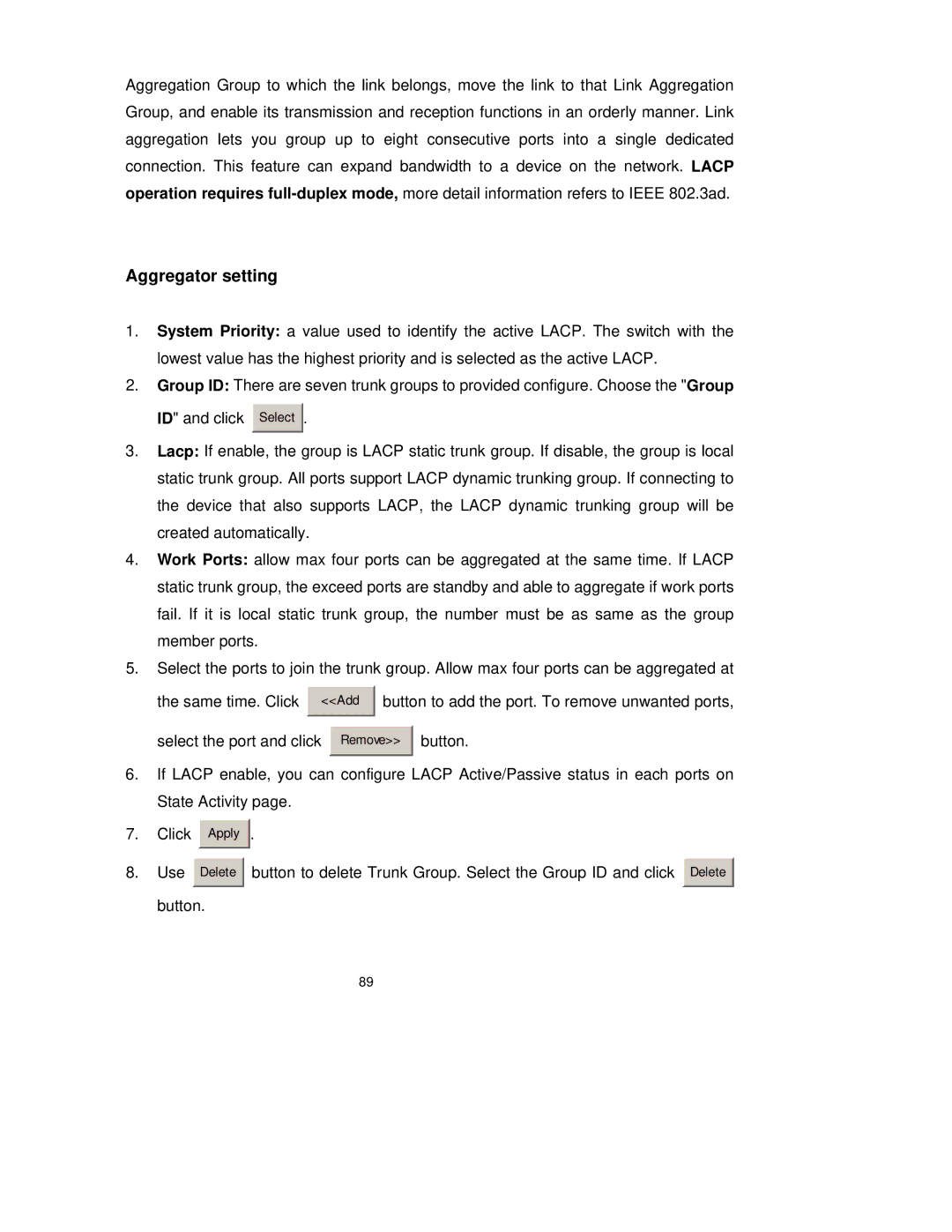
Aggregation Group to which the link belongs, move the link to that Link Aggregation Group, and enable its transmission and reception functions in an orderly manner. Link aggregation lets you group up to eight consecutive ports into a single dedicated connection. This feature can expand bandwidth to a device on the network. LACP operation requires
Aggregator setting
1.System Priority: a value used to identify the active LACP. The switch with the lowest value has the highest priority and is selected as the active LACP.
2.Group ID: There are seven trunk groups to provided configure. Choose the "Group
ID" and click
Select ![]()
![]() .
.
3.Lacp: If enable, the group is LACP static trunk group. If disable, the group is local static trunk group. All ports support LACP dynamic trunking group. If connecting to the device that also supports LACP, the LACP dynamic trunking group will be created automatically.
4.Work Ports: allow max four ports can be aggregated at the same time. If LACP static trunk group, the exceed ports are standby and able to aggregate if work ports fail. If it is local static trunk group, the number must be as same as the group member ports.
5.Select the ports to join the trunk group. Allow max four ports can be aggregated at
the same time. Click
<<Add ![]() button to add the port. To remove unwanted ports,
button to add the port. To remove unwanted ports,
select the port and click Remove>> ![]() button.
button.
6.If LACP enable, you can configure LACP Active/Passive status in each ports on State Activity page.
7.Click Apply ![]() .
.
8. Use Delete ![]() button to delete Trunk Group. Select the Group ID and click button.
button to delete Trunk Group. Select the Group ID and click button.
Delete ![]()
89
